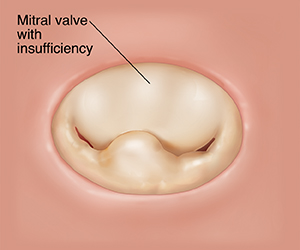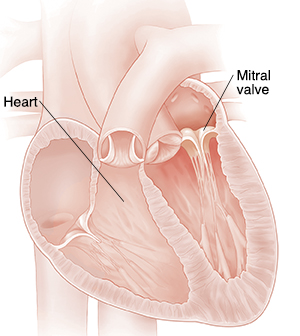A
B
C
D
E
F
G
H
I
J
K
L
M
N
O
P
Q
R
S
T
U
V
W
X
Y
Z
Click a letter to see a list of medical procedures beginning with that letter.
Click 'Back to Intro' to return to the beginning of this section.
Heart Valve Problems: Mitral Insufficiency
Mitral insufficiency means your mitral valve has problems closing. This lets blood leak back through the valve.
The heart has 4 valves. These valves help blood flow through the heart and out to the body by promoting forward flow and preventing back flow. The mitral valve lies between the 2 chambers of the heart on the left side. These 2 chambers are the left atrium and left ventricle. When the valve is open, it allows blood to flow from your lungs and left atrium to your left ventricle. When the left ventricle contracts to pump blood into your body, the mitral valve closes to prevent blood from leaking backward.
With mitral insufficiency, a small amount of leaking blood rarely leads to problems. But if the leaking is severe, it can cause damage to and enlargement of the heart. That's because the leaking of blood means the blood has to be pumped twice.
 |
| Closed mitral valve with insufficiency (viewed from above). |

Possible causes of mitral insufficiency
Causes may include:
Treating mitral insufficiency
Medicines may be prescribed. These help the heart work better. In severe cases, heart valve surgery may be needed to repair or replace the valve.
Online Medical Reviewer:
Robyn Zercher FNP
Online Medical Reviewer:
Ronald Karlin MD
Online Medical Reviewer:
Stacey Wojcik MBA BSN RN
Date Last Reviewed:
3/1/2024
© 2000-2025 The StayWell Company, LLC. All rights reserved. This information is not intended as a substitute for professional medical care. Always follow your healthcare professional's instructions.